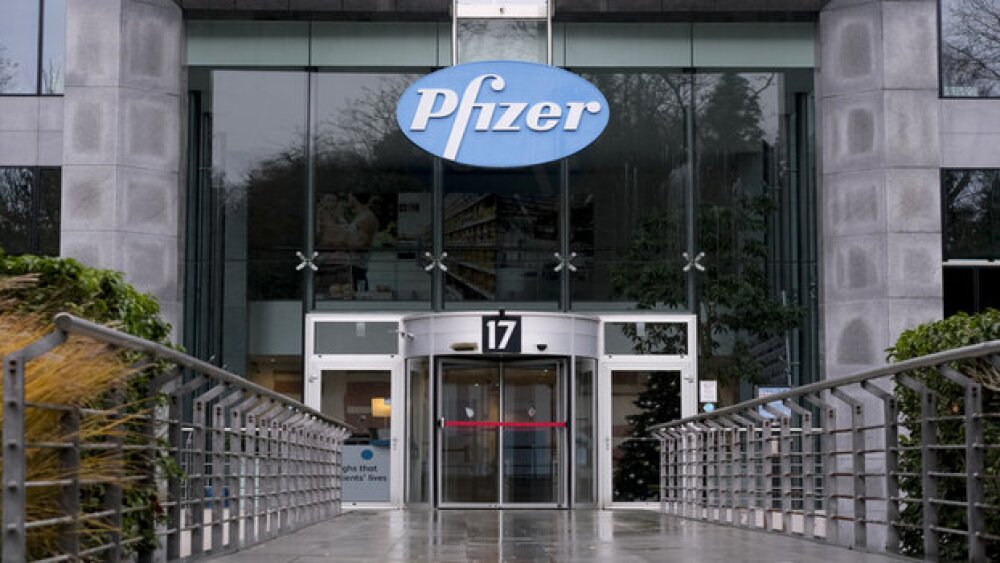The pharmaceutical giant is tapping the world’s largest biomanufacturing facility operated by Samsung Biologics for biosimilar production.
Pictured: Pfizer office in Brussels, Belgium/iStock, Alexandros Michailidis
Pfizer signed two strategic agreements Tuesday, designating South Korea’s Samsung Biologics as a contract manufacturing partner for biosimilar products, according to an article by The Korea Times.
One of the two contracts is a completely new agreement worth $704 million, which is Samsung Biologics’ largest single deal closed so far, according to the news report. The second is a follow-up to a previous contract signed in March 2023, which was originally valued at $183 million. Pfizer and Samsung Biologics expanded this contract to $193 million Tuesday.
Tuesday’s news follows a June 2023 announcement which also referred to a long-term manufacturing deal over Pfizer’s multi-product biosimilar portfolio, but gave no specific financial details at the time.
Through this pair of contracts, Pfizer will gain access to Samsung Biologics’ newly operational Plant 4, which will allow the U.S. pharma giant to further ramp up its large-scale manufacturing capabilities for biosimilars across oncology, inflammation and oncology.
Samsung Biologics began operations at Plant 4 in October 2022 but only fully completed the facility in June 2023. With a maximum production capacity of 240,000 liters, Plant 4 is the world’s largest biomanufacturing plant. A fifth plant is under construction and Samsung Biologics expects to have it up and running by 2025, which will bring the company’s total biomanufacturing capacity up to 784,000 liters.
The pair of manufacturing deals reflects Pfizer’s “trust in the Korean Pharmaceutical industry to address emerging health challenges” and its mission to “enable greater access to medicines for more patients across the world,” Mike McDermott, Pfizer’s chief global supply officer, said in a statement accompanying the June announcement.
Pfizer has invested in its biosimilar portfolio, particularly in cancer. This includes the injectable Ruxience (rituximab-pvvr), indicated for non-Hodgkin’s lymphoma, chronic lymphocytic lymphoma, rheumatoid arthritis and polyangiitis. Another oncology biosimilar is Retacrit (epoetin alfa-epbx) for anemia in patients undergoing concomitant myelosuppressive chemotherapy, as well as Trazimera (trastuzumab-qyyp), authorized for HER2-positive breast and metastatic stomach cancers.
In 2022, Ruxience generated $458 million in revenue, while Retacrit and Trazimera brought in $394 million and $203 million, respectively.
Pfizer is the latest addition to Samsung Biologics’ roster of big pharma partners, a list that includes Eli Lilly, AstraZeneca and GSK.
Tristan Manalac is an independent science writer based in metro Manila, Philippines. He can be reached at tristan@tristanmanalac.com or tristan.manalac@biospace.com.






